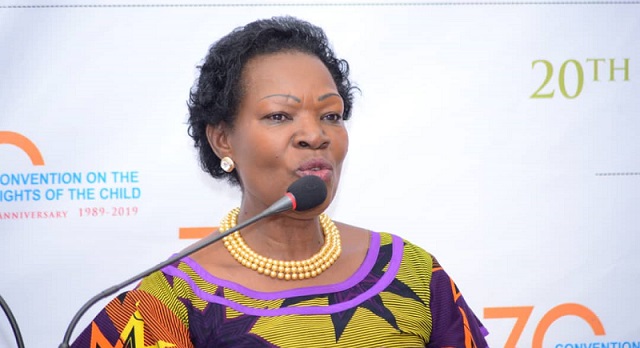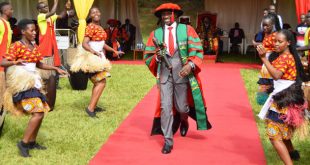
Kampala, Uganda | THE INDEPENDENT | The Uganda Women Parliamentary Association-UWOPA and Uganda Women Network-UWONET have reached a consensus to drop a controversial clause in the Marriage and Divorce Bill providing for cohabitation.
The move follows nationwide consultations on the matter, according to the female legislators and women activists. Laureen Karayi Nabimanya, the Programme Coordinator UWONET, says they have built consensus amongst key stakeholders and they are hopeful that the bill will be enacted into law come 2019.
The women activists belief the passage of the bill will help align development goals as well as help to achieve gender equality in Uganda. The bill seeks to regulate the rights and obligations of those within the institution of marriage and provide consolidated laws to uphold the institution of marriage to promote social justice within the family unit.
The bill was initially meant to reform and consolidate all laws relating to marriage, separation and divorce as well as providing for recognized marriages in Uganda, marital rights and duties, and recognition of cohabitation in relation to property.
Among others, the bill also seeks to ban widow inheritance, which the activists argue conflicts with the constitutional guarantee of free consent to marriage. Other provisions relate to proposed change of bride price to marriage gifts, marital property rights, marital disharmony and dissolution ranging from separation, divorce and remarriage.
Jova Kamateeka, the Chairperson of the Parliamentary Human Rights Committee and Mitooma Woman MP, says while they agree to drop the name and cohabitation, marital rape should be provided for in the law.
Marital rape was one of the controversial issues in the bill that has dragged on for more than 40 years. Kamateeka says the Minister for Justice and Constitutional Affairs is expected to retable the bill on the floor with the proposed amendments from consultations and proposals by citizens.
The MPs are optimistic that the bill will be passed since majority of the contentious issues have been dropped.
Following this consensus, CSOs are slated to meet with the council of presidents, the top leadership of the religious leaders and faith institutions early next week to have agreeable points relating to the bill.
UWONET’s Karayi says this meeting will be feedback to religious leaders on what they have agreed since they had been at the forefront of opposing the bill.
The Kassanda North MP, Simeo Nsubuga has advised the advocates of the bill to focus more energy on convincing religious leaders to appreciate the advantages of the bill.
He also observes that marital rape, which the women activists are reluctant to drop, remains a contentious issue that must be addressed before the bill returns to parliament.
Rosette Kajungu Mutambi, the Mbarara woman Member of Parliament, says there is no way they can pass a law where religious leaders are offended. She also says they support the bride price but object to a refund of bride price once the marriage fails to work out.
The Gulu Municipality Member of Parliament, Lyandro Komakech, notes that marital rape is a result of insufficient sex education by Ugandan men.
****
URN
 The Independent Uganda: You get the Truth we Pay the Price
The Independent Uganda: You get the Truth we Pay the Price



I think there is a very big controversy on bride price in this era of activism for gender equity.
My candid Opinion regarding dowery would be for both the parents of the boy and the girl to make contributions and then this contribution be given to the couple to go and start off their live.
There has never been a very convincing reason why dowry is paid to the family of a girl. If it is meant for appreciation, doesn’t the Boyd’s parents deserve being appreciated? And if it is because they girl is moving from her parents to the boy’s family, what if the boy stays far from his parents and the two have chosen to stay independently, who then has moved to whose parent’s home?
Who should determine the amount to be paid? Should it be a girl, the girl’s parents, the boy’s parents, the boy or all? And who should carry the burden of paying? And who should be the boss in a family where a man has paid dowry when addressing the question of gender equity?
And if a boy spends all he has in trying to pay the dowry and thereafter marriage he fails to provide for his family, who is to blame?
And if they are saying that it should be inform of gifts, to whom should the gifts be given ? by who? how much gift? who should determine the amount of gifts? when should these gifts be given? And what should be done if there are no gifts? Is there any special support meant for those that can not afford to pay gifts so that they are not discriminated in the field of marriage? Have the legislators also thought of who should meet the marriage costs?
NB: The author is a student of master of research and public policy.